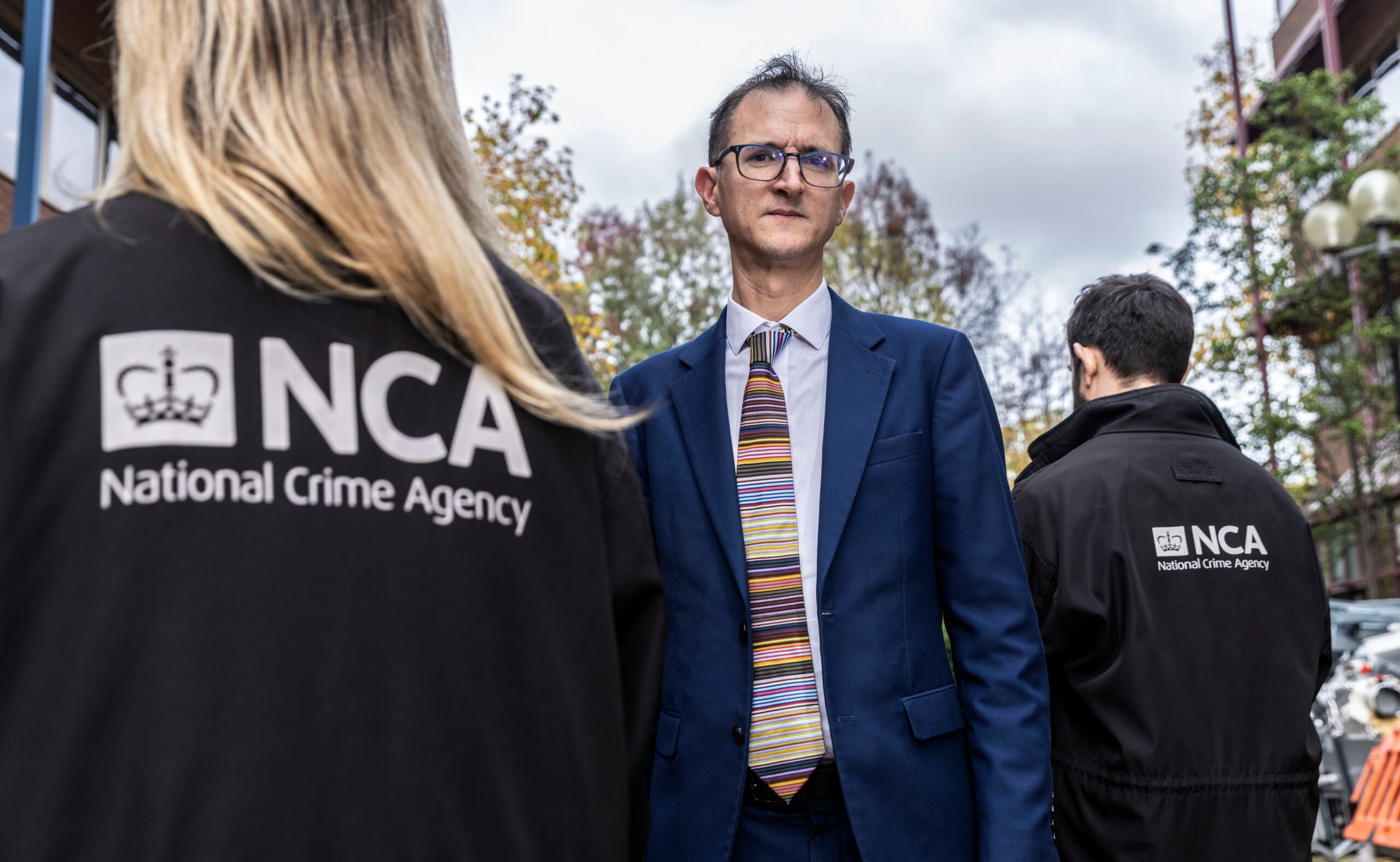NCA warns tech giants like Meta are blinding themselves to child abuse
Facebook and other tech giants are putting “profit before safety” by introducing end-to-end encryption on their messaging platforms, the head of the National Crime Agency has warned.
Graeme Biggar, the NCA’s director-general, said US companies such as Meta, the owner of Facebook and Instagram, have “consciously blinded themselves” to serious crimes, including terrorism and child sexual abuse, by the default addition of new privacy measures.
End-to-end encryption, which is already standard on some apps, such as WhatsApp and Telegram, stops anyone but the sender and recipient of a message from seeing it, making it impossible to detect potential offences.
It means that companies will be unable to access messages, images and videos to provide to the police, which are often integral in catching paedophiles and other criminals. The NCA fears that Meta’s introduction of end-to-end encryption will deprive it of 92 per cent of child abuse leads from Facebook and 85 per cent from Instagram.
“These are the biggest companies in the world and they are making life harder for us,” Biggar said. “They know that they are making life harder for us, and they know that as a result people are less safe.”
His rebuke came as he joined more than 30 European law enforcement chiefs in an unprecedented intervention, calling on Meta and other tech companies to reconsider their actions.
Meta began implementing encryption as default on its Facebook Messenger app in December. The same technology is expected to be introduced to Instagram Direct chats this year.

In a joint declaration ratified in London and issued this weekend, the police leaders said: “Our societies have not previously tolerated spaces that are beyond the reach of law enforcement, where criminals can communicate safely and child abuse can flourish. They should not now. We cannot let ourselves be blinded to crime.”
Catherine de Bolle, executive director of Europol, the agency that leads the fight against serious and organised crime across the EU, said children were becoming more at risk in their own homes than on the streets because of “a lack of social responsibility” from big tech.
She likened end-to-end encryption to “sending your child into a room full of strangers and locking the door”, adding: “It should not be for the tech industry to dictate to us the rules relating to digital data in society.”
• The online safety bill was forged in tragedy — it must not fail
Until now, Meta has been able to scan all messages on its platforms and is obliged by US law to report any suspected child abuse activity, including obscene images, to the National Center for Missing & Exploited Children (NCMEC).
Of the 36 million referrals by tech companies to the NCMEC last year, 17.8 million came from Facebook and 11.4 million were from Instagram.
Content from the two social media platforms is one of the biggest sources of evidence for British police, helping them to safeguard up to 1,200 children and arrest about 800 suspected paedophiles every month.
One recent referral for an international sextortion case helped to identify multiple accounts of suspected criminals posing as women to entice young boys in Britain and overseas to share indecent images of themselves, with a view to financial blackmail.
Separately, the NCA and other law enforcement agencies across Europe have routinely been able to serve warrants on tech companies to ask for potentially crucial evidence when they suspect criminality.
Biggar said: “Are they putting profit before safety? Yes. They are private companies. That is what they are set up to do. But we really want them to take a responsible course of action.”
The police chiefs want tech companies to find a way of increasing privacy for users while still allowing for the content of messages to be made available to investigators, such as through some form of “back door”.
The joint declaration has been signed by 32 countries, including Britain, the 27 member states of the EU as well as Norway, Switzerland, Iceland and Liechtenstein.
It says that default encryption will “undermine” police requests for access to data and referrals by companies to the NCMEC.
“These are quite different capabilities, but together they help us save many lives and protect the vulnerable in our countries on a daily basis from the most heinous of crimes, including, but not limited to, terrorism, child sexual abuse, human trafficking, drugs smuggling, murder and economic crime,” the statement says.
“They also provide the evidence that leads to prosecutions and justice for victims of crime.”
A spokesman for Meta said: “The overwhelming majority of Brits already rely on apps that use encryption to keep them safe from hackers, fraudsters, and criminals. We don’t think people want us reading their private messages so have spent the last five years developing robust safety measures to prevent, detect and combat abuse while maintaining online security.
“We recently published an updated report setting out these measures, such as restricting people over 19 from messaging teens who don’t follow them and using technology to identify and take action against malicious behaviour. As we roll out end-to-end encryption, we expect to continue providing more reports to law enforcement than our peers due to our industry-leading work on keeping people safe.”




Post Comment